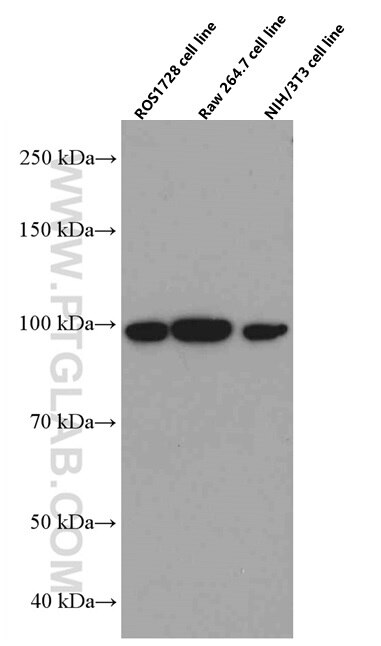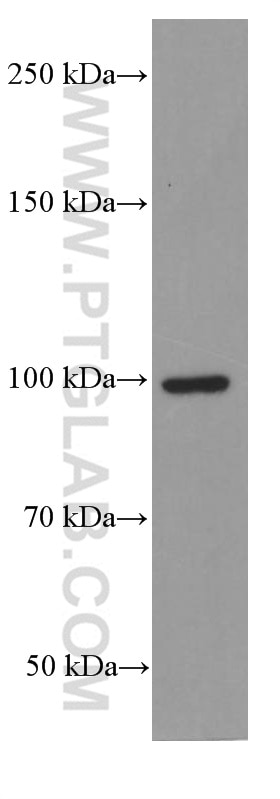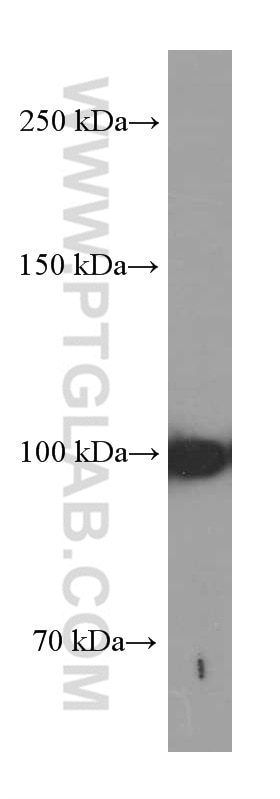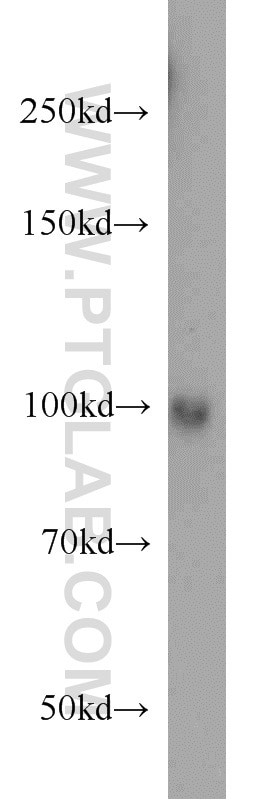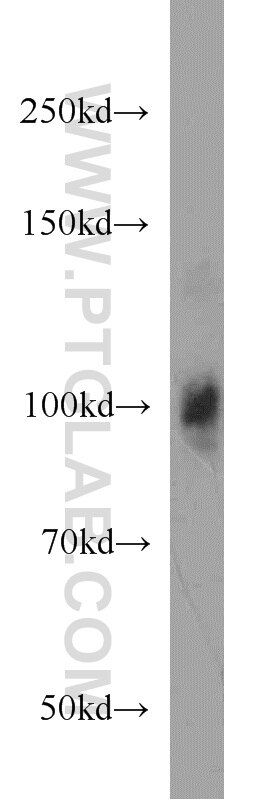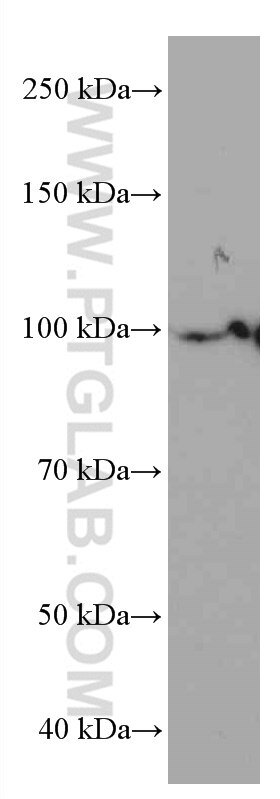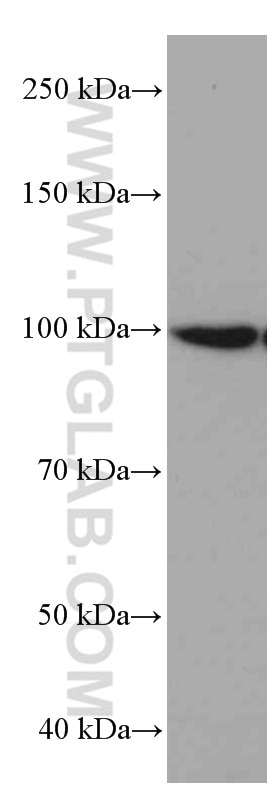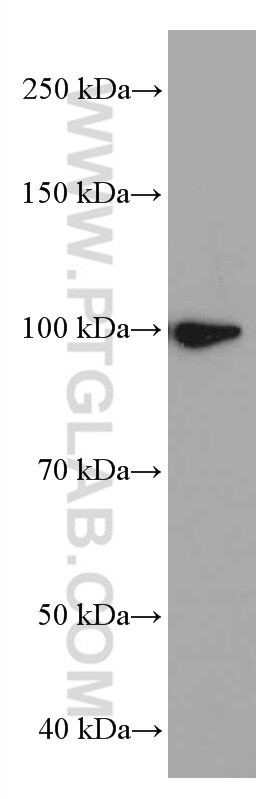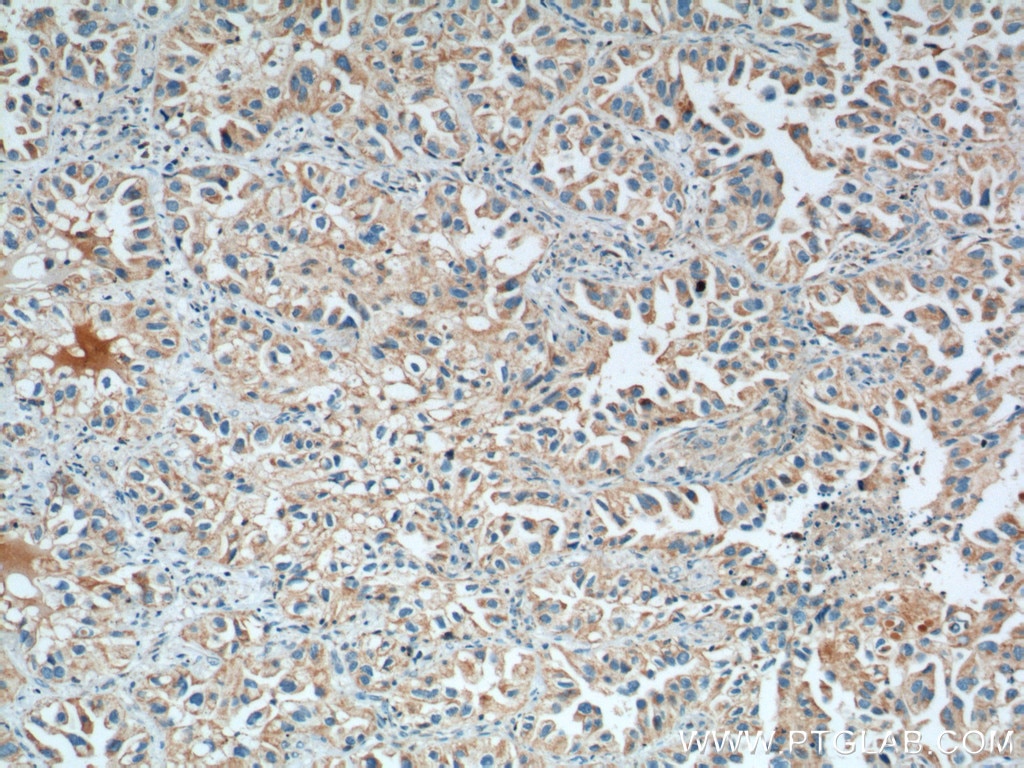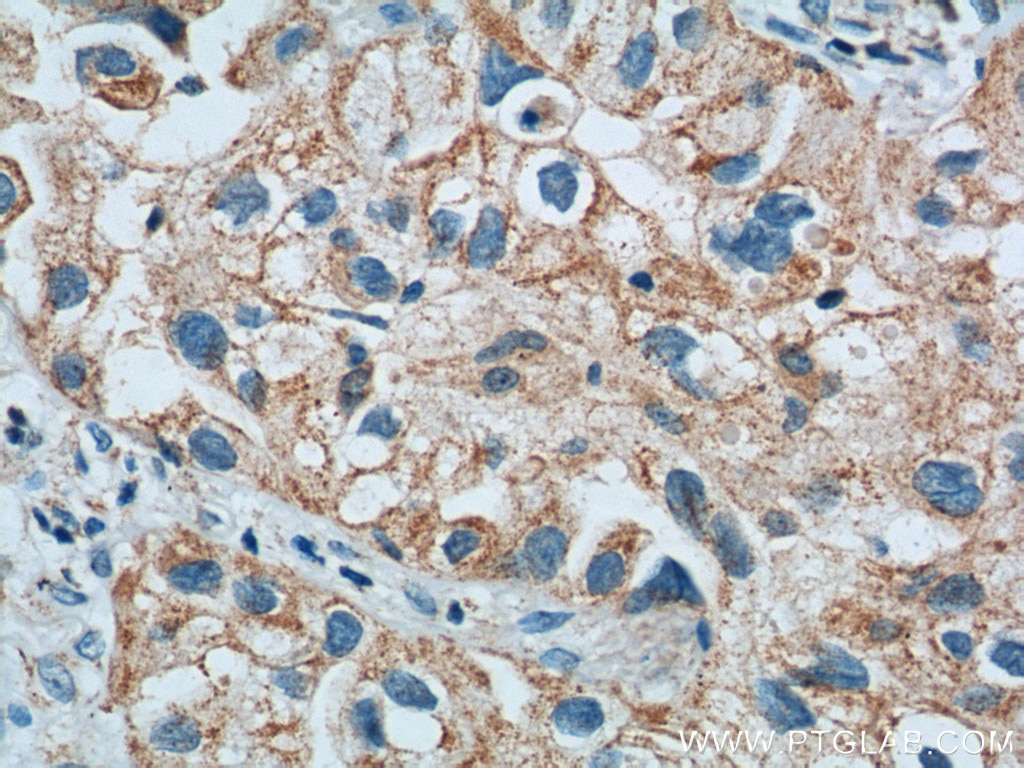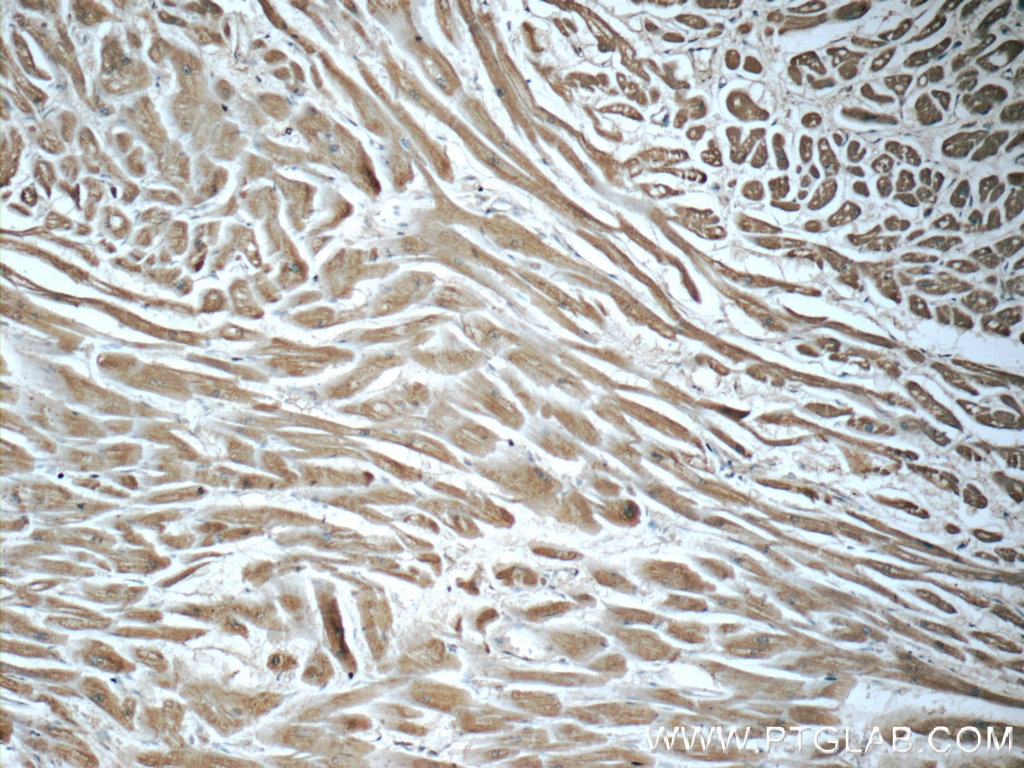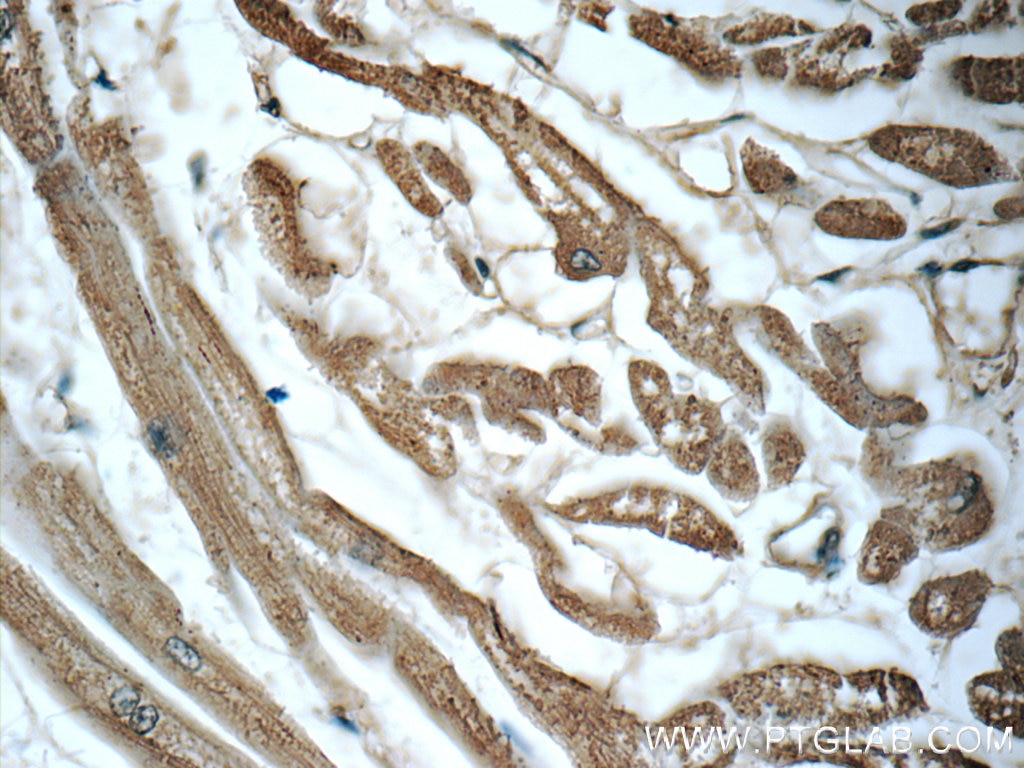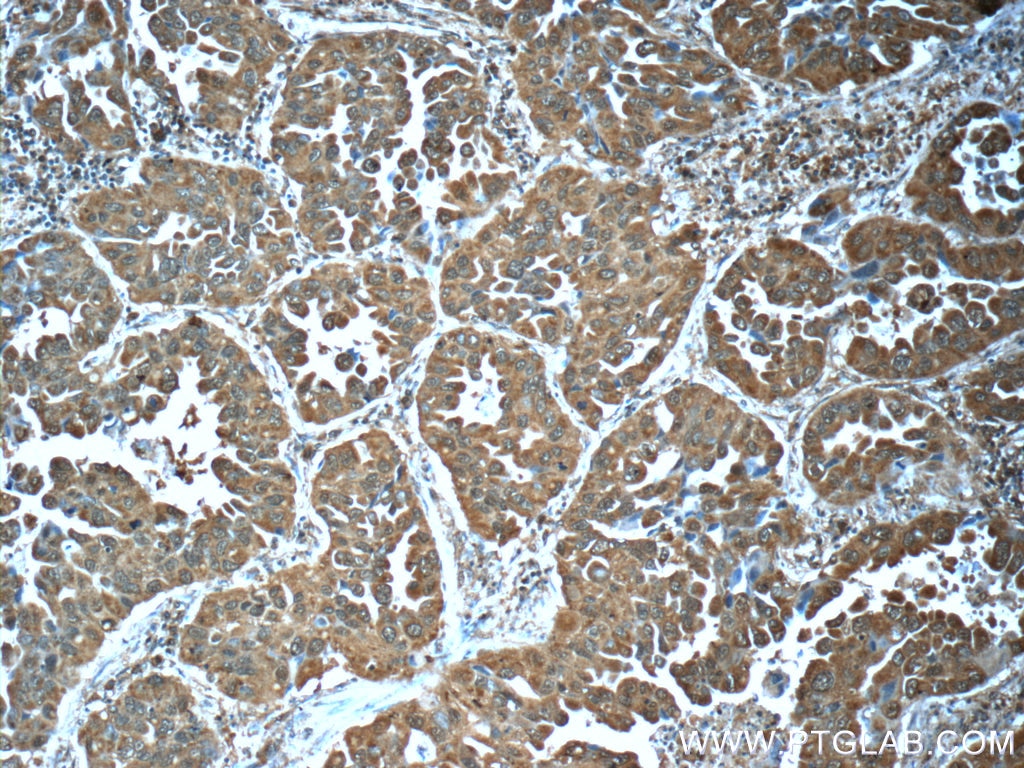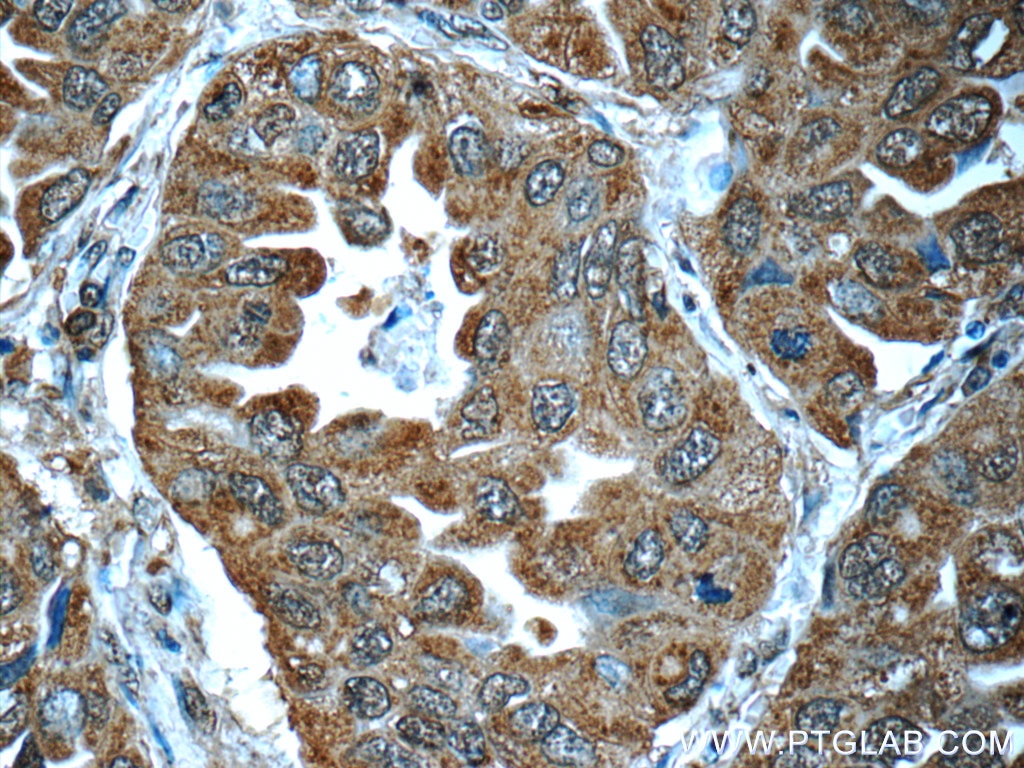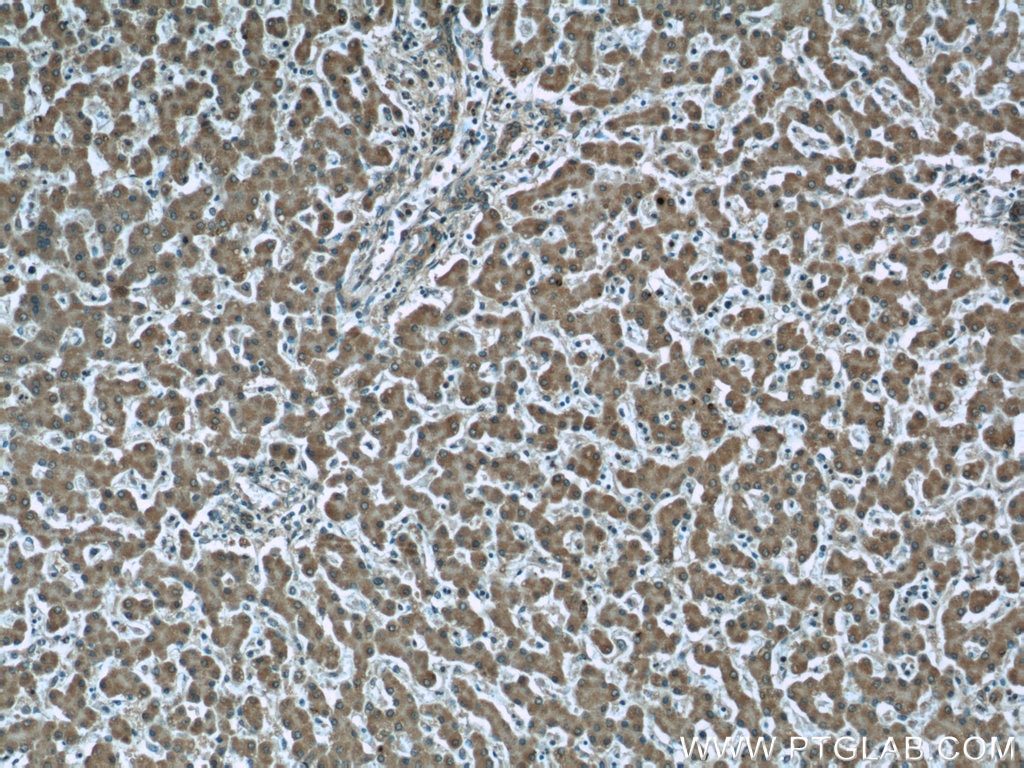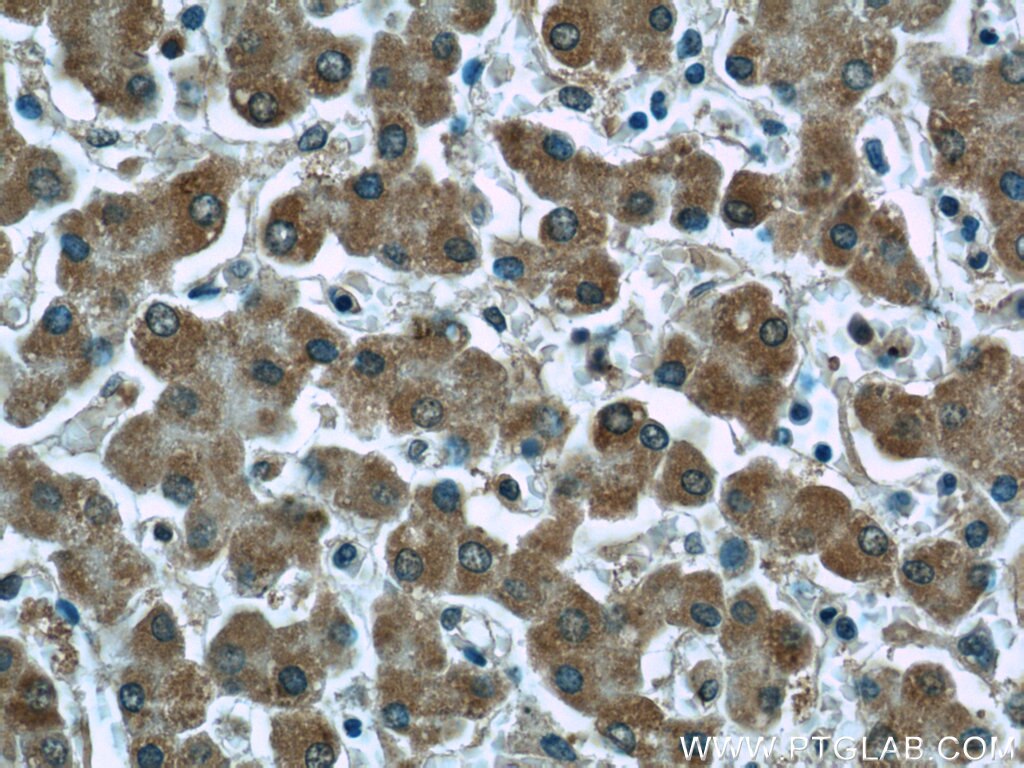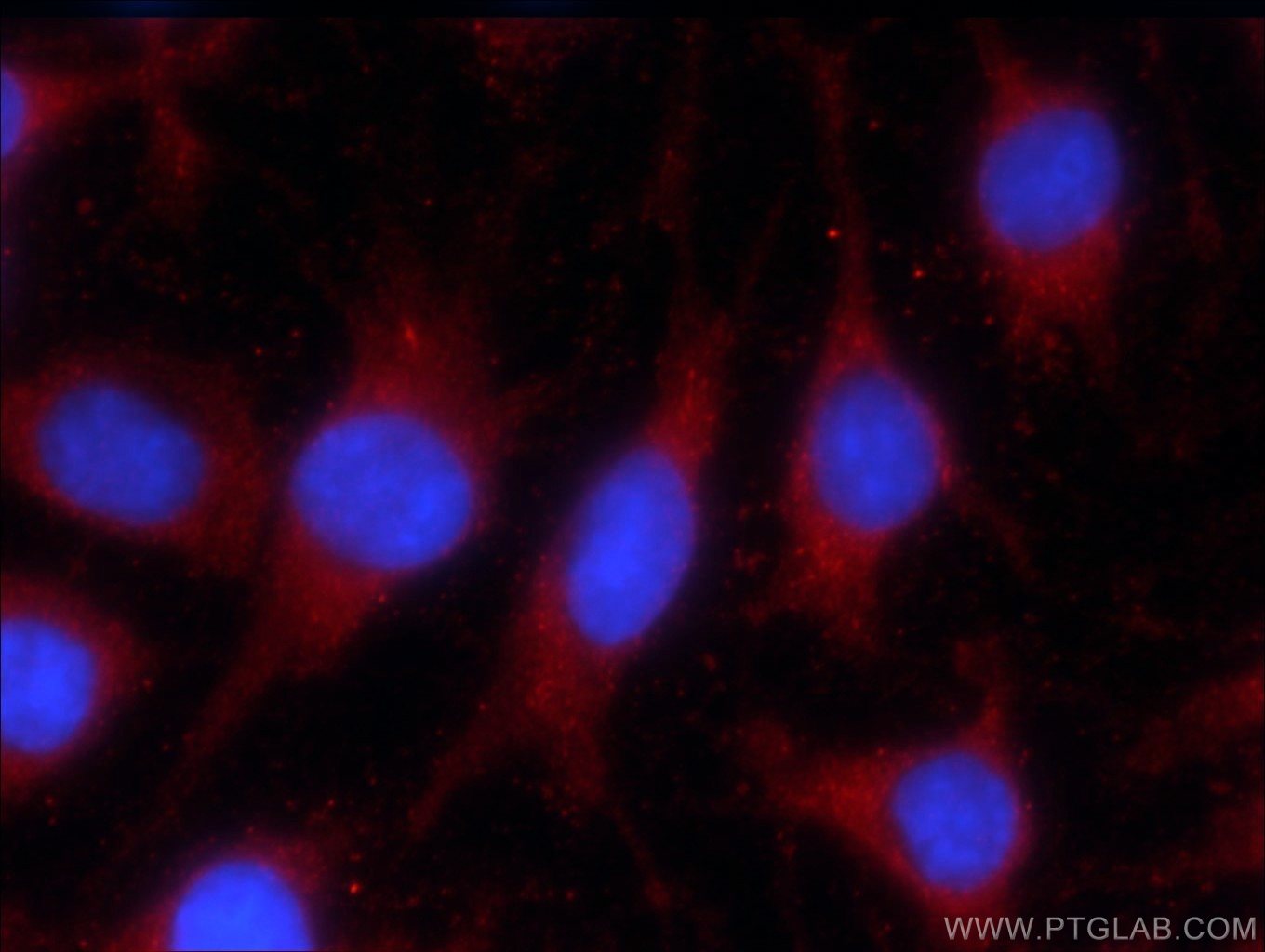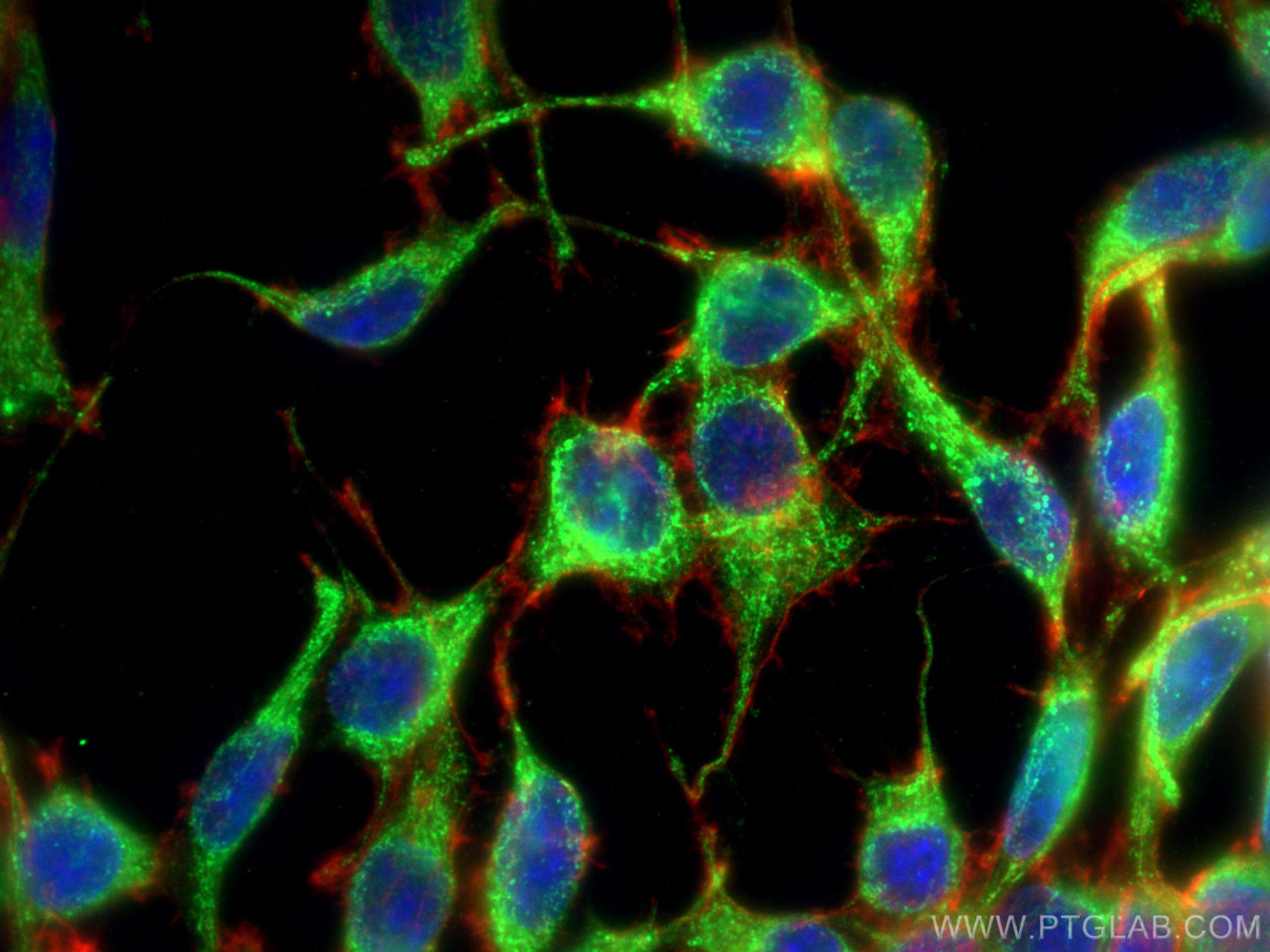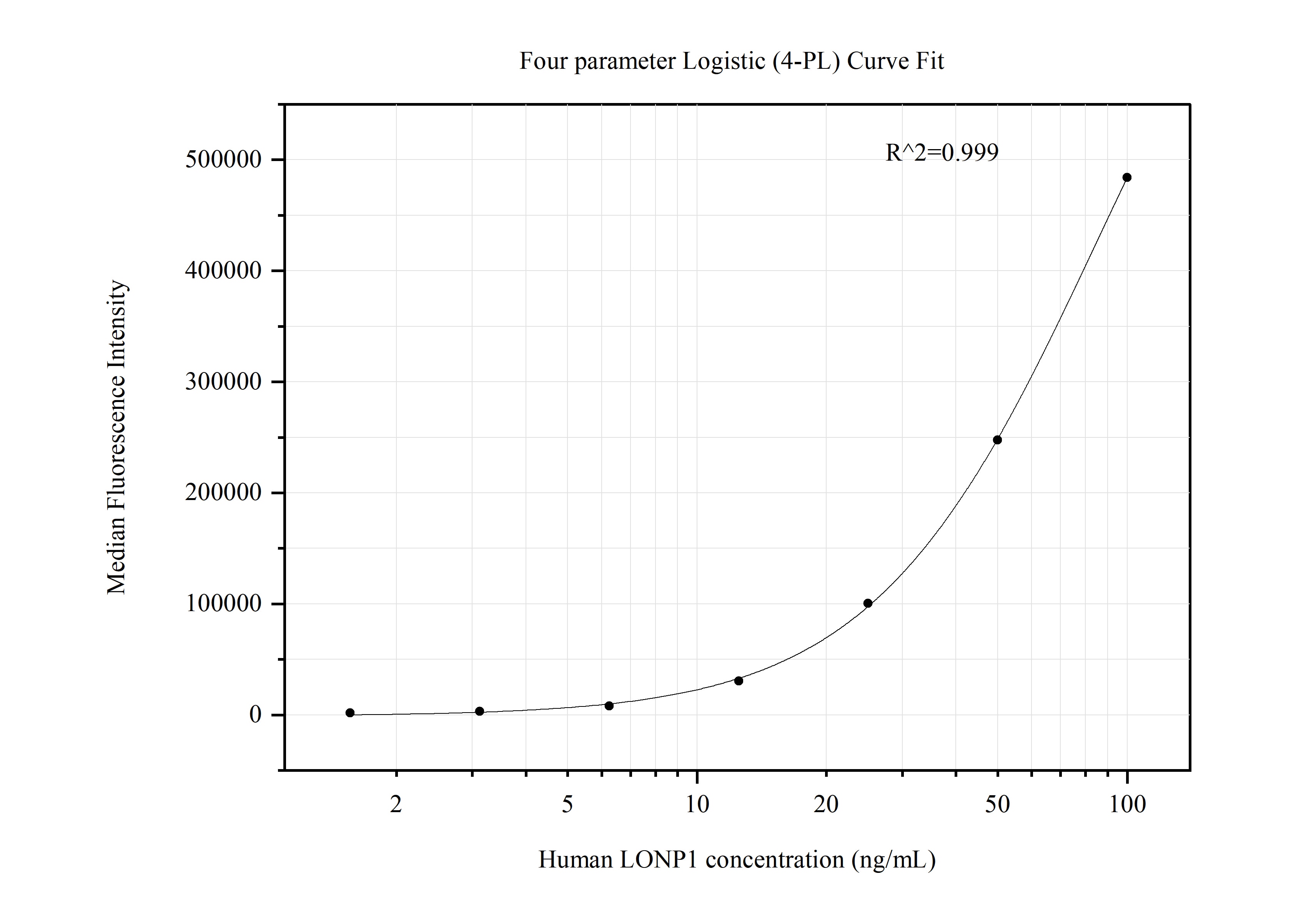Product Information
66043-1-PBS targets LONP1 as part of a matched antibody pair:
MP50672-1: 66043-1-PBS capture and 66043-2-PBS detection (validated in Cytometric bead array)
Unconjugated mouse monoclonal antibody pair in PBS only (BSA and azide free) storage buffer at a concentration of 1 mg/mL, ready for conjugation.
This conjugation ready format makes antibodies ideal for use in many applications including: ELISAs, multiplex assays requiring matched pairs, mass cytometry, and multiplex imaging applications.Antibody use should be optimized by the end user for each application and assay.
| Tested Reactivity | human, mouse, rat |
| Host / Isotype | Mouse / IgG1 |
| Class | Monoclonal |
| Type | Antibody |
| Immunogen | LONP1 fusion protein Ag7306 Predict reactive species |
| Full Name | lon peptidase 1, mitochondrial |
| Calculated Molecular Weight | 106 kDa |
| Observed Molecular Weight | 100 kDa |
| GenBank Accession Number | BC000235 |
| Gene Symbol | LONP1 |
| Gene ID (NCBI) | 9361 |
| RRID | AB_2881494 |
| Conjugate | Unconjugated |
| Form | Liquid |
| Purification Method | Protein G purification |
| UNIPROT ID | P36776 |
| Storage Buffer | PBS only, pH 7.3. |
| Storage Conditions | Store at -80°C. |
Background Information
LONP1(Lon protease homolog, mitochondrial) is also named as LONP, LONHS, HLON, LON, PRSS15, PIM1, MGC1498 and belongs to the peptidase S16 family. It seems to play a major role in the elimination of oxidatively modified proteins in the mitochondrial matrix(PMID:18021745). LONP1, also a nuclearly encoded and mitochondrially located stress-responsive protease, is involved in heme-mediated ALAS-1 turnover(PMID:21659532). It recognizes specific surface determinants or folds, initiates proteolysis at solvent-accessible sites, and generates unfolded polypeptides that are then processively degraded(PMID:15870080).
